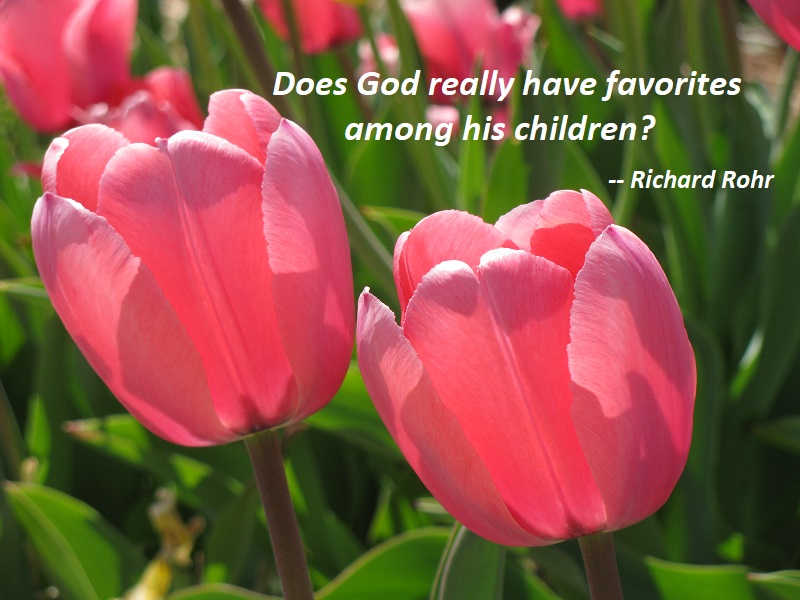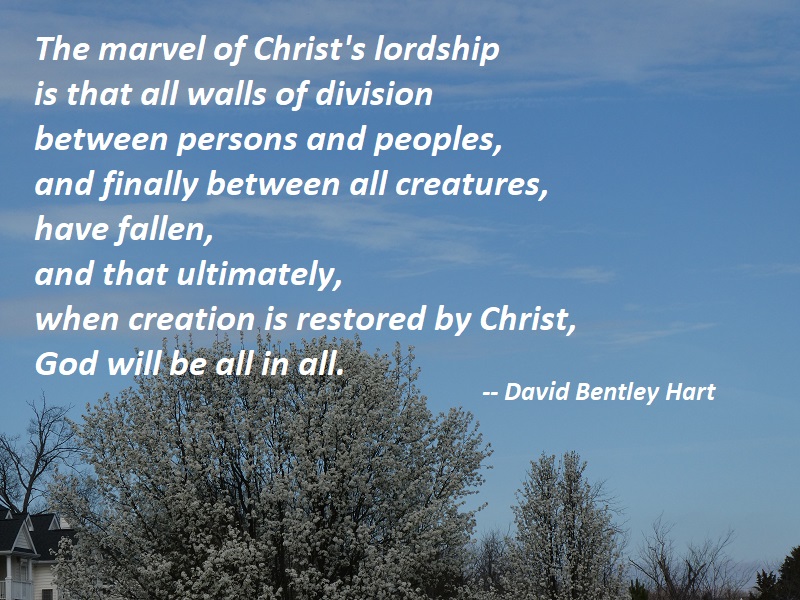Like God
In fact, Jesus tells his disciples to turn the other cheek and to love their enemies specifically because this is what God does to His own enemies. So, when we love our enemies, we are like God who sends the rain on the righteous and the unrighteous alike. (See Matt. 5:45)
Jesus also shows us an “Abba” who, like the father of the prodigal son, goes out of his way to seek out his children; to embrace them, forgive them, and extend mercy to them, and who does not require punishment before extending this love to us.
Taking these facts into account, I find it highly unlikely that Jesus would have accepted the new teaching of Eternal Suffering, as the Pharisees had done. It seems far outside of his character to have embraced such a doctrine, especially in light of the merciful, patient, and loving God he revealed to us.
— Keith Giles, Jesus Undefeated, p. 77-78
Photo: South Riding, Virginia, October 2, 2020.









